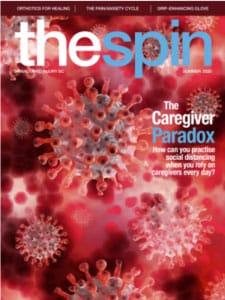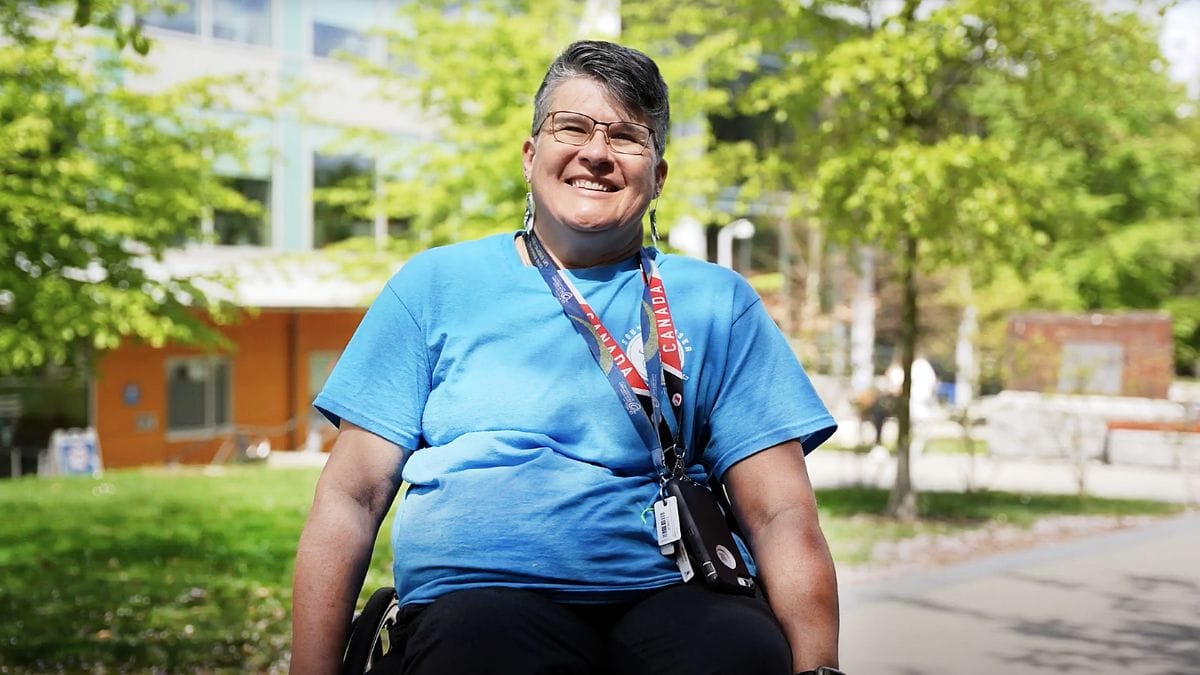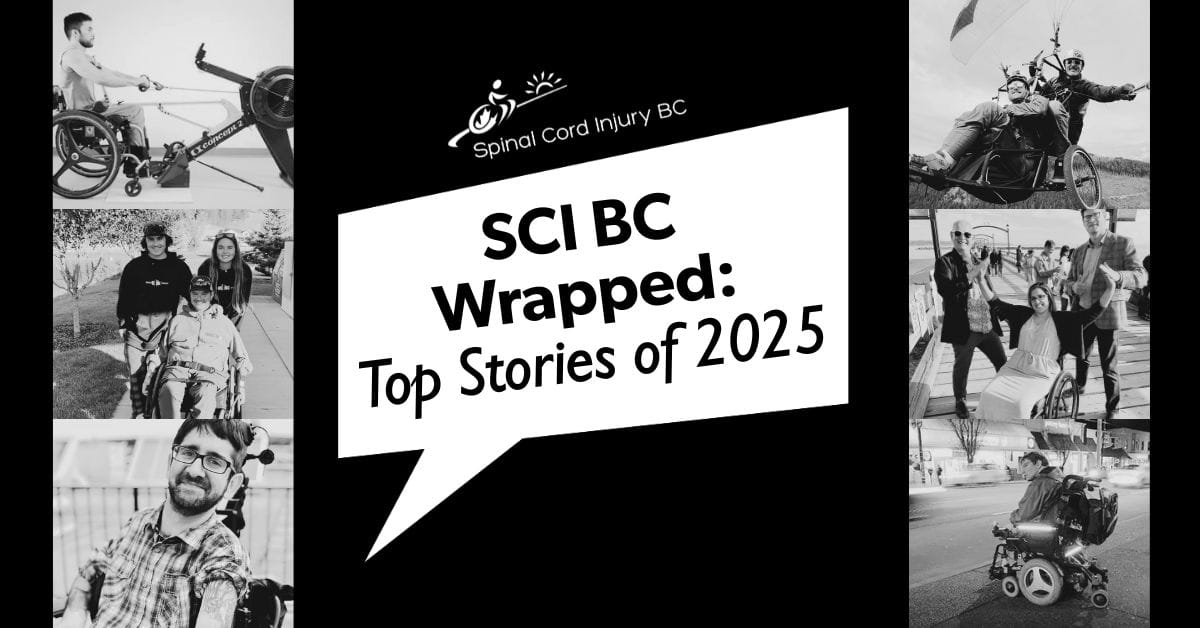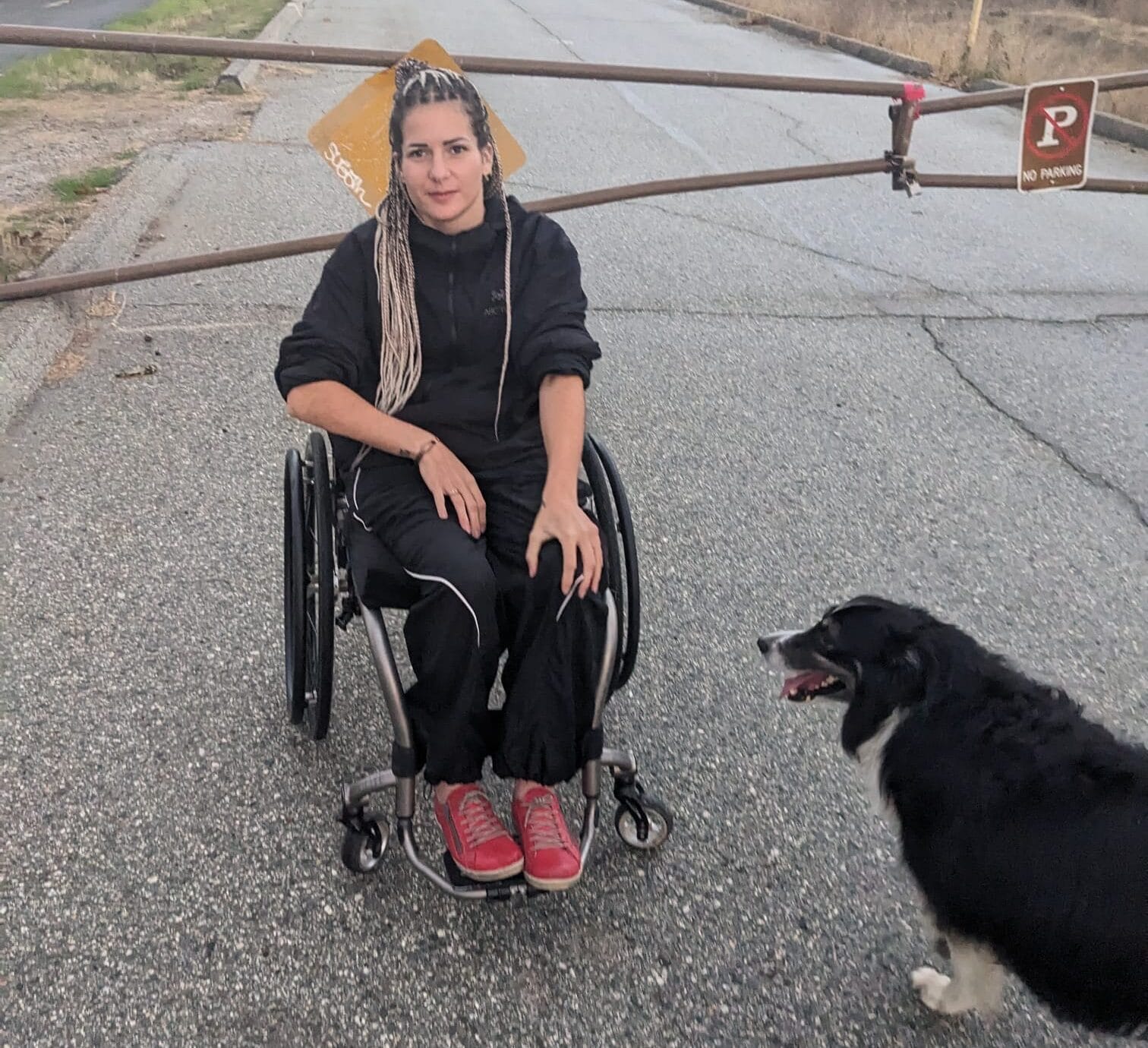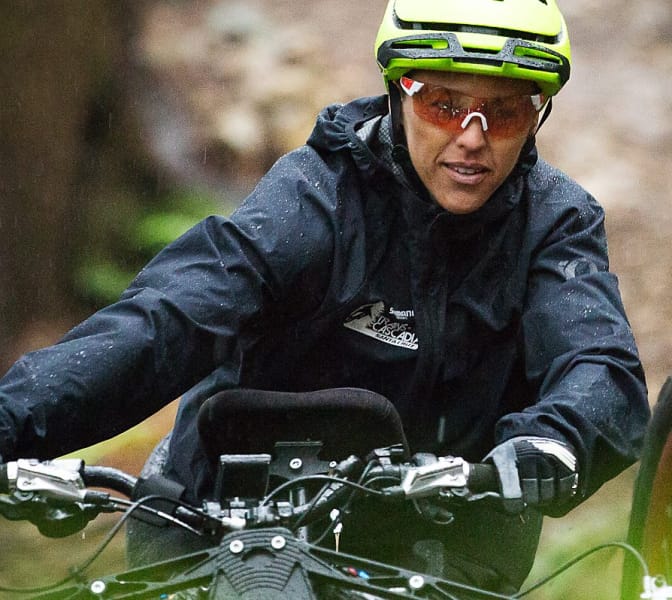
TARA LLANES: ORIGINS
Tara Llanes believes that a perfect antidote for pandemic-induced stress is to get outside.
“A lot of us can feel cooped up right now, and having the opportunity to get outside and get some exercise, while keeping physical distance, is awesome,” says Llanes, a transplanted Californian who now calls North Vancouver home. “Especially with the weather starting to turn, it’s important to keep our mental health in a good place.”
In particular, she believes that adaptive mountain biking is tough to beat as a great way for other Peers to safely experience the outdoors. Of course, Llanes (pronounced yawness, not lanes) may be just a little biased, having been a mountain biker for most of her life—before and after being injured. Originally a BMX rider (she started at the age of 11), she graduated to mountain biking in 1993 and spent the next 15 years travelling the world and competing as a professional mountain biker. Her accolades include an X-Games Gold, two Silvers, and a Bronze.
All that changed in a split second during a 2007 competition in Colorado. She hit an obstacle the wrong way and was thrown over the handlebars. The crash left her an L1 paraplegic.
During her recovery, an unexpected romance with a fellow mountain biker altered her life path.
“I met Elladee when I was 17 years old while we were both racing mountain bikes on the pro circuit in the US and Europe,” says Llanes. “After she retired, we had lost touch for about 11 years, but we bumped into each other a year after I broke my back. I was living in California and we’d started a long-distance relationship. After flying back and forth, I made the decision to move to Vancouver. It was actually a very easy decision. It wasn’t like I toiled over it. It was more, ‘Let’s really do this. I’ll come to you.’”
The couple have been together since, and Llanes became a citizen shortly after she obtained her residency status.
“I couldn’t be prouder,” she says. “I was born and raised in the US, but there is just something about Canada. The pace of everything just feels right. And now that I’ve been here over 10 years, things seem much more polarizing south of the border, which makes me appreciate life here even more.”
Shortly after starting her new life in Canada, many doors started to open for Llanes—including an opportunity to get back in the saddle.
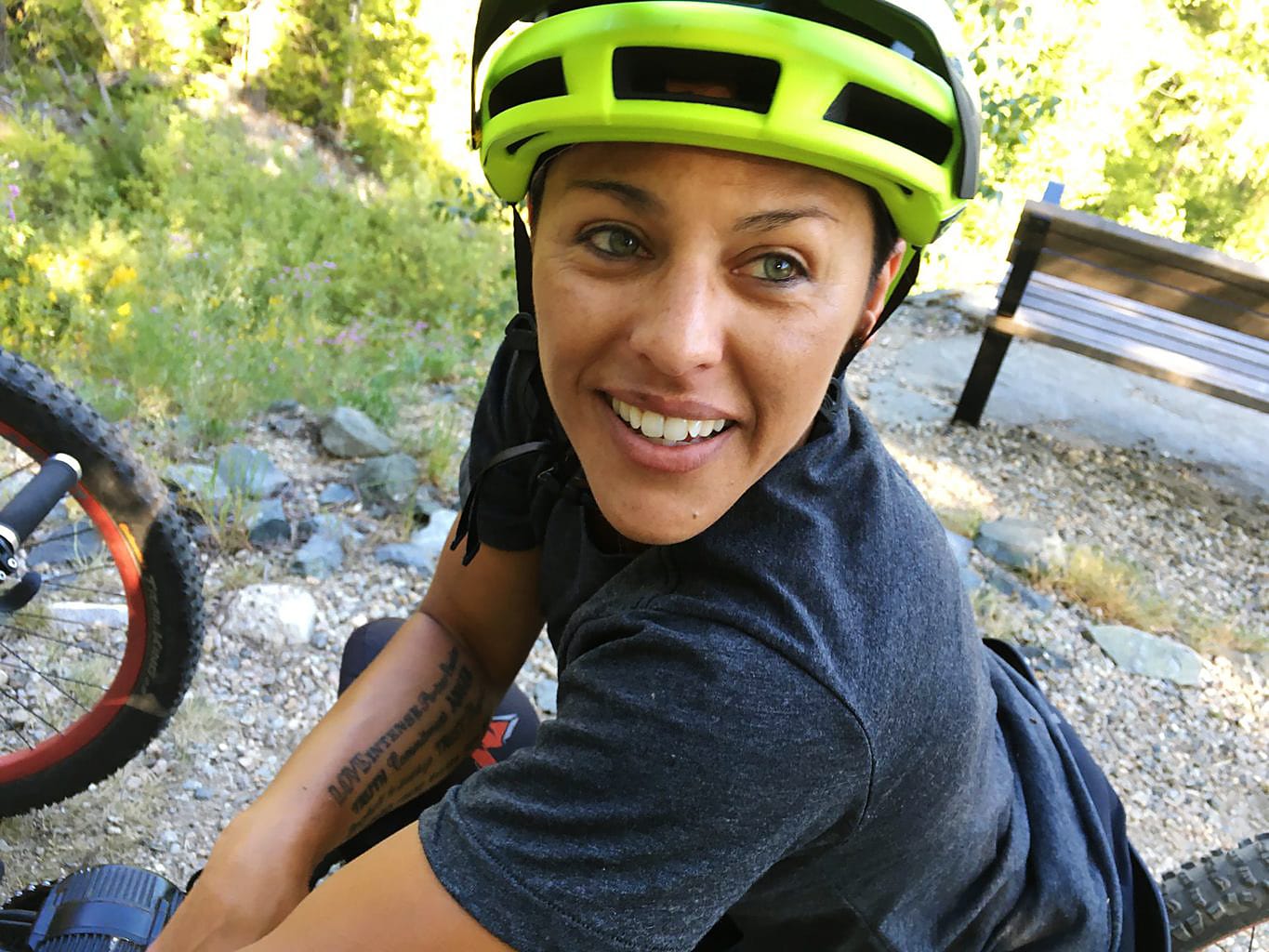
A NEW CHAPTER
“When I first got hurt in 2007, the only thing I could think about was being able to rail on a bike again,” she says. “I wasn’t interested in just cruising. I wanted to have a piece of equipment that would allow me to pin it down a mountain. It was a couple years after I moved to BC, around 2012, when some friends of mine found this awesome aMTB. They did a fundraiser and surprised me with it—a new Sport-On Explorer. It had full suspension; you sat in more of an attack position. It was the first aMTB I’d ever seen that looked like it could handle the types of trails I wanted to ride.”
But the Explorer did more than just get Llanes back on the mountain—it ended up being the catalyst for a new career.
“The thought of having my own business had never crossed my mind,” she explains. “It wasn’t until I had my Explorer, and had so many people ask me about it while on the trails, that it even occurred to me. BC is the mecca of mountain biking and it made me wonder why there were no reps here. I contacted the owner of Sport-On, Jaroslaw Rola, a double-amputee who originally started designing and manufacturing the bikes in Poland because people saw the bike he’d made for himself. I let him know I had a background in mountain biking, loved the bike, and felt there was a market out here. From there I think it accidentally turned into a business.”
Today, as the owner of Tara Llanes Industries, Llanes represents the Sport-On aMTBs across Canada.
“It’s taken some time to evolve and honestly, I knew absolutely nothing about running my own business,” she admits. “It was a lot of trial and error. A lot! In the beginning I wasn’t sure what I was getting myself into. Being self-employed, there is so much uncertainty as to what your salary will be, and not having any sort of pension is a bummer. However, the pros are that I can make my own hours, I’m my own boss, and I can run things the way I think will help grow the sport. I knew that mountain biking had a rich history here in BC and I felt like adaptive mountain biking finally had equipment that was capable. It was a great opportunity to give people a chance to be out in the mountains during summer months.”
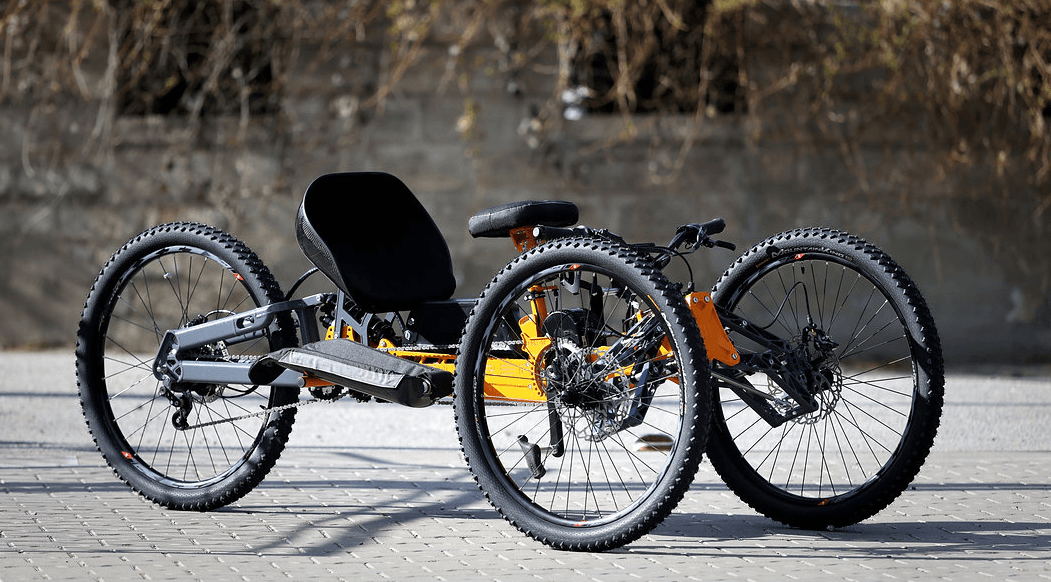
HOW IT WORKS
We asked her to explain her company’s business model.
“I am not a distributor, meaning that I don’t have a warehouse with tons of bikes. We don’t have office space simply because it would cost us too much here in BC. Instead, I like to focus on working with adaptive organizations such as Whistler Adaptive, Kootenay Adaptive, and others. If potential customers want to demo the bikes, they get in touch with these organizations. This way, it promotes the adaptive organization, the bike and the sport, while keeping costs down for both myself and ultimately the customer.”
She adds that she creates awareness of the Sport-On bikes via social media, word of mouth, and good customer service. But she thinks the most effective way of spreading the word is having the bikes at camps held by adaptive sport and recreation organizations.
“Whistler Adaptive has hosted an aMTB camp for the past four years, and it’s a great way to get people set up on the bikes, answer questions, and have their knowledgeable staff and volunteers take us out on the trails. I’ve also headed out to GF Strong a few times to show the bikes to people who are newly injured.”
If you’ve never seen the Sport-On line, Llanes would love for you to check them out—she says there are models for just about every type of use and user.
“Our XCR bike is our hardtail gravel grinder, double track type bike. It’s front-wheel drive with your legs out front. It’s perfect for green and blue circle types of trails. Our Explorer is our all-mountain bike with rear-wheel drive. It comes with full suspension, and you kneel in a more aggressive stance. It has two steering systems—one is the chest pad allowing you to lean on the pad while pedalling, and then you’ve got the handlebars for when you’re ready to go downhill. The FAT Explorer is the same bike, but with a FAT tire option. Then we have the Jeetrike, which is our newest model. It’s an amalgamation of the XCR and Explorer. It has full suspension and is rear-wheel drive, but your legs are out front like the XCR.”
If you’re interested in knowing more, Llanes recommends checking out her website and then getting in touch.
“If someone is interested in a bike, they can call or email me and I’m more than happy to answer questions they have about the bikes—which Sport-On models are best on which terrain, and what type of electric assist, drive train, and accessories we offer.”
You can learn more about Tara Llanes and her initiative at tarallanesindustries.com.
Liked this story? Want to read more about adaptive mountain biking? Click here!
This full article originally appeared in the Summer 2020 issue of The Spin. Read the full version alongside other stories, including:
- The Caregiver Paradox
- Brace Yourself
- Grasping the Subject
- and more!
Read the full Summer 2020 Issue of The Spin online!
